Before that, stories about the ancestors and race of the Vietnamese people were passed down through folklore, passed down orally from generation to generation, explaining the origin, encouraging community spirit, and promoting national pride. As Academician Ho Tong Thoc - author of "Vietnam The Chi" (1472) wrote in the preface of the book, what he recorded in the book was only "stories gathered" from "rumors, extracted from the beginning to clearly understand the genealogy of each generation, as for the strange and obscure stories that are difficult to examine, they were temporarily kept there for later gentlemen", but if the reader knows how to "pay attention, carefully perceive, and try to ponder, then the gems and stones will be clear; the echoes and shadows of history will be seen". The ancients' words are also a reasonable perception of a regular problem that, all myths and legends ultimately have their origins in reality, and come from people and events that have existed in real life.
In 1470, the Hung King era was officially confirmed in the official history of Vietnam. That was when King Le Thanh Tong assigned the Academician Nguyen Co to compile the "Ancient Genealogy of the 18 Holy Kings of the Hung Dynasty" (Ngoc Pha Hung Vuong). From then on, the Hung King genealogy was also established at the state level and Hung Vuong was officially recognized as the Ancestor of the nation or also known as the National Ancestor. In the book "Dai Viet Su Ky Toan Thu" by Ngo Sy Lien (1479), the lineage and title of the Hung King era were respectfully and fully presented in the Hong Bang period - the era that opened the history of the Vietnamese nation. The historical works of the Le dynasty and later dynasties such as: "Viet Su Thong Giam" by Vu Quynh (16th century), "Dai Viet Su Ky Tuc Bien" (18th century), "Lich Trieu Hien Chuong Loai Chi" by Phan Huy Chu (19th century), "Kham Dinh Viet Su Thong Giam Cuong Muc" by the National History Institute of the Nguyen dynasty (19th century)... all consider the Hung King era as the founding period of the history of the Vietnamese nation.
Lac and Hong descendants raised high the festival flag to show the enduring vitality of the Dragon Fairy lineage. Photo: HUU TRUONG
The custom of worshipping Hung Kings has existed since ancient times among the Vietnamese people. Some historical documents say that the custom of worshipping Hung Kings dates back more than 2,000 years, starting from the event when Thuc Phan-An Duong Vuong, after being abdicated by the 18th Hung King, went up to Nghia Linh mountain, erected a stone pillar in the middle of the mountain, looked up to the sky and swore: "I pray that the immense sky and the vast earth will never be wrong, the Southern country will last forever, the Hung King's mausoleum will last forever. I vow to forever look after the mausoleum and protect the country that Hung King gave me; if I break my promise, I will be punished with a hammer and an axe." During the Nguyen Dynasty, the court paid special attention to the worship of Hung Kings, restored temples on Nghia Linh Mountain, took the 10th day of the third lunar month every year as the anniversary of Hung Kings' death, regulated the rituals of the National Ancestor worship at Hung Temple ( Phu Tho ), and regulated the local tax revenue to fund the care, incense, and organization of the annual National Ancestor death anniversary. The court also brought the Hung Kings' tablets to worship in the Temple of the Great Emperors in the capital city of Hue.
After the success of the August Revolution in 1945, despite the extremely difficult and complicated circumstances, the newly established Democratic Republic of Vietnam still paid special attention to the anniversary of the death of the National Ancestor Hung King. On February 18, 1946, President Ho Chi Minh issued Decree No. 22C NV/CC stipulating that the 10th day of the third lunar month is the anniversary of the Hung King's history. On that day, all offices nationwide will be closed, and permanent employees will be assigned to work, and public employees working at the offices will have the right to receive salary during official holidays. The anniversary of the death of the National Ancestor Hung King in 1946 was solemnly held on the 10th day of the third lunar month at Hung Temple, Phu Tho. Minister of the Interior Huynh Thuc Khang, Head of the National Assembly Standing Committee Nguyen Van To, Chairman of the Northern Administrative Committee Nguyen Xien, represented the State to go to Hung Temple to inform the National Ancestor. Since then, the Hung King worship has been regularly paid attention to by our Party and State, increasingly spreading its meaning, and being respected and responded to by the people of the whole country. The death anniversary of the Hung King on the 10th day of the third lunar month every year has become an official holiday of the State; the Hung King worship ceremony on the day of the even-numbered years is presided over by the State, and other years are organized by Phu Tho province on behalf of the whole country. Along with the system of mausoleums, temples, shrines, and pagodas worshiping the Hung Kings on Nghia Linh Mountain, many localities in the country have built works to worship the National Ancestor and figures of the Hung King era who are heroes, people with meritorious services to the country and the people. On the 10th day of the third lunar month every year, when the National Ancestor worship ceremony is solemnly and solemnly held at Hung Temple, all localities in the country also organize ceremonies or other solemn commemorative forms; throughout Vietnam, there is no place where incense smoke is not fragrant in remembrance of ancestors and the origin of the nation. On this day, many Vietnamese communities abroad also turn to their homeland, celebrating the death anniversary of the Hung Kings in a variety of ways.
Cultural exchange at Hung Temple Festival in the year of At Ty 2025. Photo: TA TOAN
On December 6, 2012, the United Nations Educational , Scientific and Cultural Organization (UNESCO) recognized the Hung King worship in Phu Tho as a representative intangible cultural heritage of humanity. From then on, the Hung King worship is not only a priceless spiritual heritage of our nation but has become a common spiritual value of humanity, highlighting the national identity, the pride of the Vietnamese people, contributing to spreading Vietnamese culture internationally.
Through the long history of building and defending the country, the worship of Hung Kings is closely linked to the custom of ancestor worship, becoming an extremely precious spiritual value of our nation. From the hardships and difficulties of the struggle with harsh nature, against invaders always lurking around, the worship of Hung Kings has been nurtured by the people, making it more and more sacred, more beautiful, and richer. It is not only an expression of gratitude to ancestors, about the morality of "drinking water, remember the source", "eating fruit, remember the person who planted the tree", but also a spiritual thread connecting generations, so that ancestors always "live" in the present with the values accumulated over time, passed down through generations and future generations never stray from the good traditions, have the responsibility to preserve the achievements and heritages created and left by previous generations. It is not only the sanctification of historical images to teach children and educate the community, but it has become a symbol of national unity, an important spiritual strength that contributes to national consolidation, creating strength, overcoming difficulties and hardships in labor and building life, challenges and dangers in the fight against invaders, protecting the country. It is not only a meaningful value that unites the community but also a manifestation of a profound lesson, an ethical standard of the Vietnamese people about gratitude to ancestors, to previous generations, the full awareness that "Humans have ancestors, have lineage/ Like trees have roots, like rivers have sources", "A tree has roots to grow green branches/ Water has a source to have wide seas and deep rivers".
The Vietnamese people today are truly blessed to have been handed down a priceless spiritual heritage by their ancestors, which is the worship of Hung Kings, the ancestor of the entire ethnic community. Nowhere on earth is there a nation like ours, believing in and honoring a common ancestor, as close and loving as a father or mother in the family. There is no nation like ours, where everyone calls each other "compatriots" - people born from the same womb, meaning people with the same mother, the same father, the same origin and race. We are grateful to the National Ancestor Hung Kings and generations of ancestors who have created, nurtured and passed on that happiness, that luck. But just being grateful is not enough, more importantly and necessary is that we must continue to promote the value of the worship of Hung Kings to enrich the identity and enrich the meaning of Vietnamese culture.
Our country is on the threshold of a new era of development - the era of national growth. With the cultural significance as the spiritual foundation, endogenous strength, and driving force for development, promoting the value of the Hung Kings worship will contribute significantly to the common efforts of the whole country to successfully achieve the goal by 2045 - the 100th anniversary of the founding of the Democratic Republic of Vietnam, now the Socialist Republic of Vietnam - of becoming a developed, high-income country, bringing more happiness to the people.
Source: https://www.qdnd.vn/van-hoa/doi-song/tin-nguong-tho-cung-hung-vuong-di-san-tinh-than-vo-gia-cua-dan-toc-822899


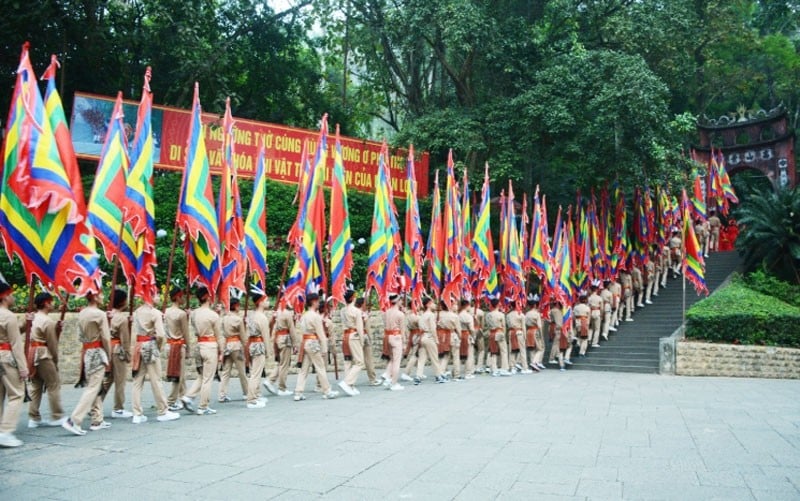
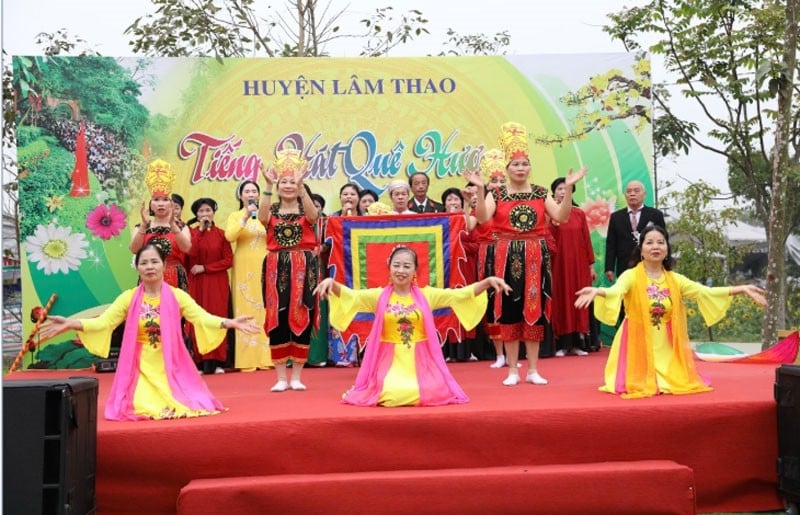


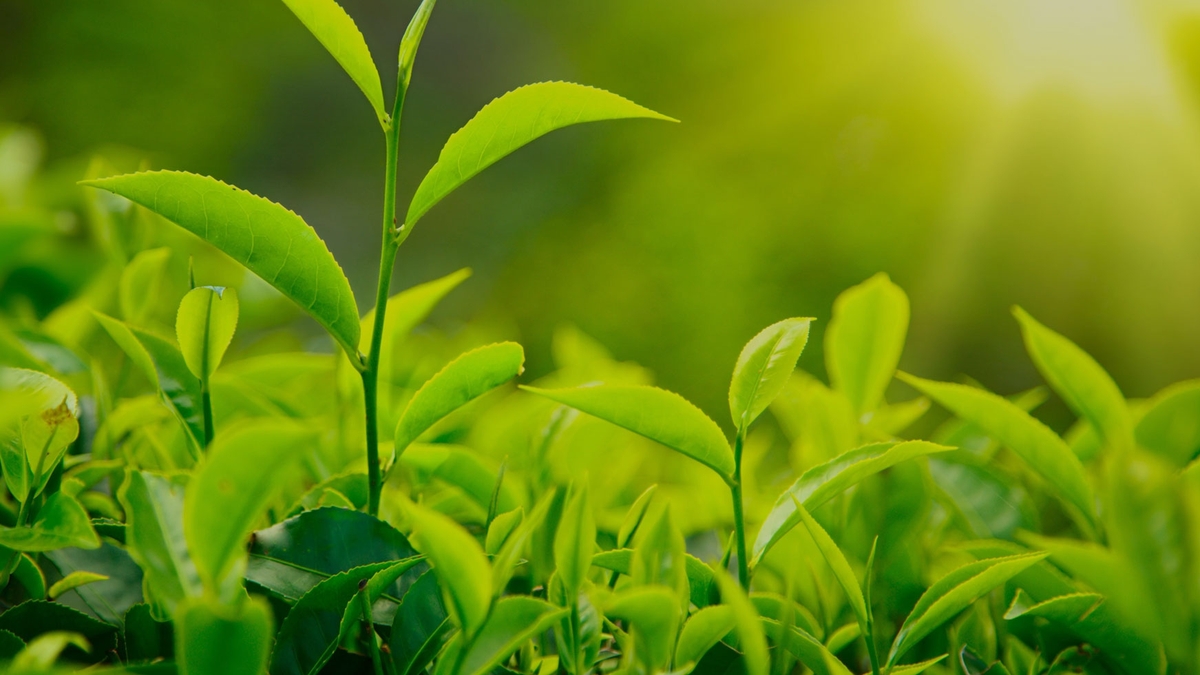



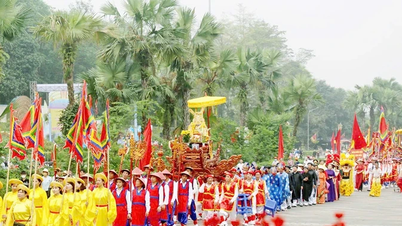



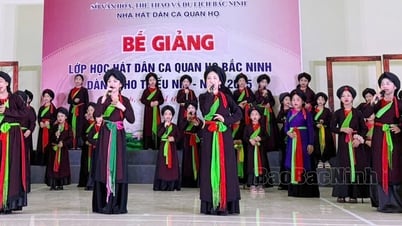

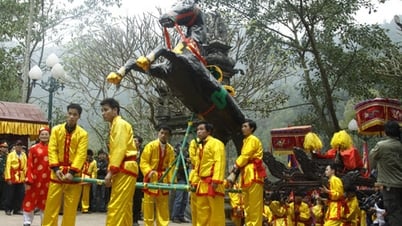

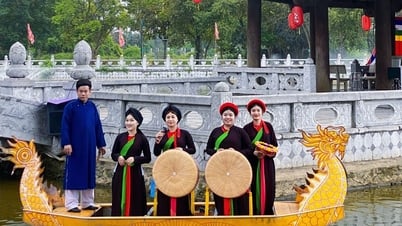

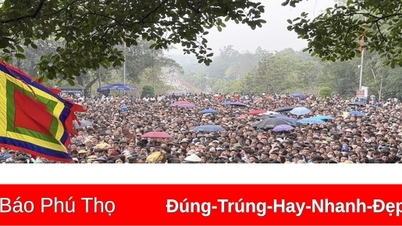








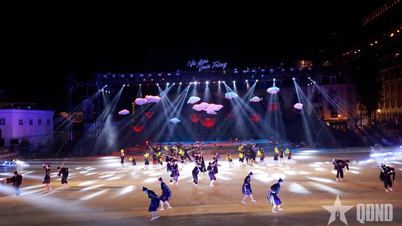
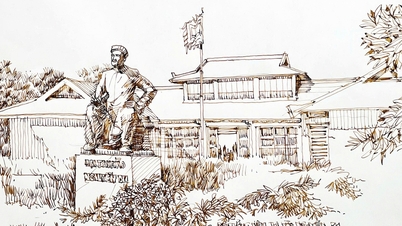





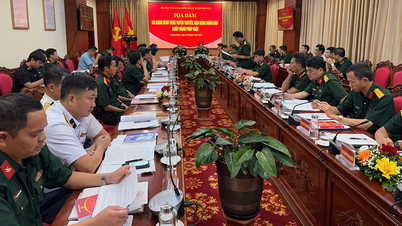

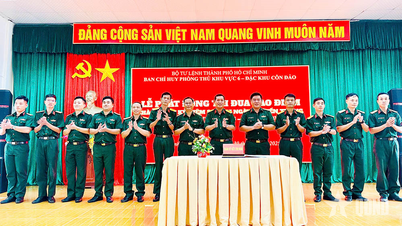
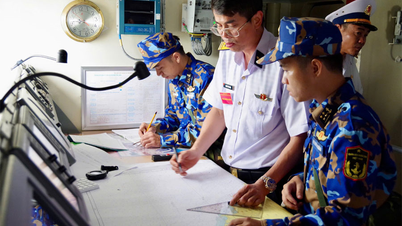


![[Photo] The 1st Congress of Phu Tho Provincial Party Committee, term 2025-2030](https://vphoto.vietnam.vn/thumb/1200x675/vietnam/resource/IMAGE/2025/9/30/1507da06216649bba8a1ce6251816820)
![[Photo] Panorama of the cable-stayed bridge, the final bottleneck of the Ben Luc-Long Thanh expressway](https://vphoto.vietnam.vn/thumb/1200x675/vietnam/resource/IMAGE/2025/9/30/391fdf21025541d6b2f092e49a17243f)
![[Photo] Solemn opening of the 12th Military Party Congress for the 2025-2030 term](https://vphoto.vietnam.vn/thumb/1200x675/vietnam/resource/IMAGE/2025/9/30/2cd383b3130d41a1a4b5ace0d5eb989d)
![[Photo] President Luong Cuong receives President of the Cuban National Assembly Esteban Lazo Hernandez](https://vphoto.vietnam.vn/thumb/1200x675/vietnam/resource/IMAGE/2025/9/30/4d38932911c24f6ea1936252bd5427fa)
















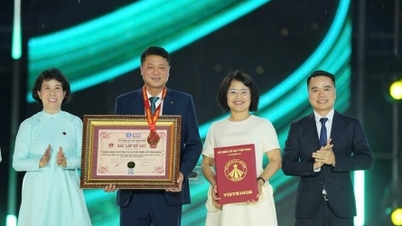

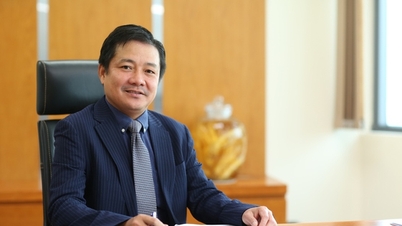
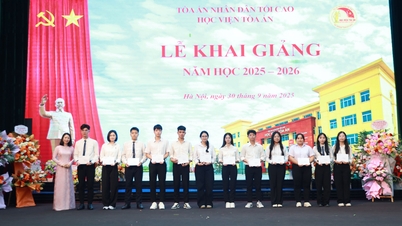
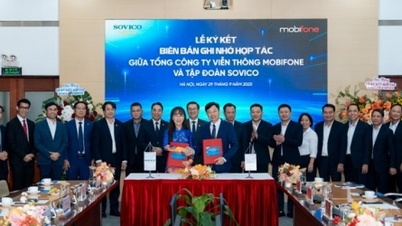





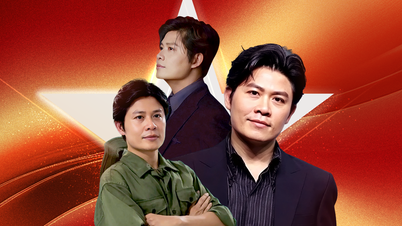

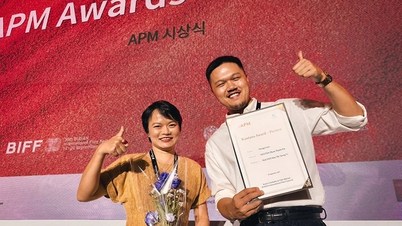
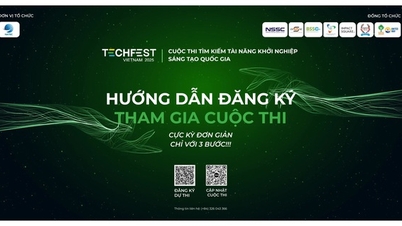

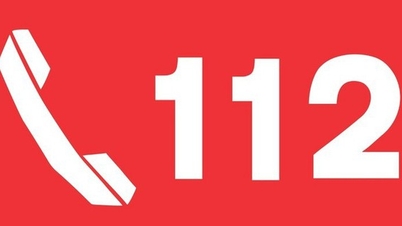







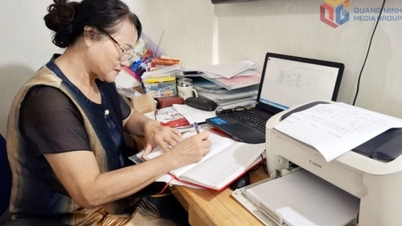

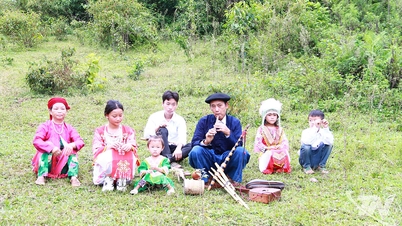


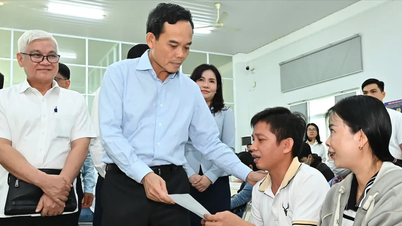

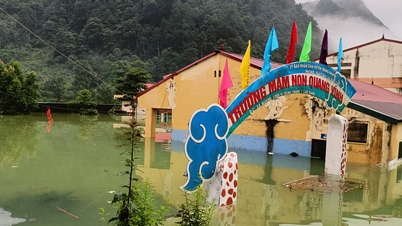














Comment (0)